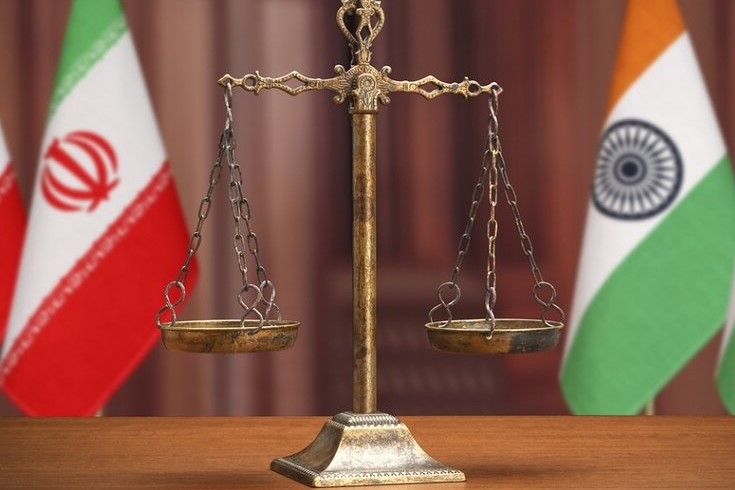India finds itself pushed to the corner?
| Date: 13-Apr-2021 |

Chabahar Port ( India- Iran strategic partnership )
The news came from New Delhi in the first week of March 2021; India is likely to start full operations at Iran's Chabahar port by May. Mansukh Mandaviya, India's ports and shipping minister, said that he expects to visit Iran in April or May for the inauguration of entire operations to boost regional trade.
The Chabahar Port has great importance to India for many reasons as its a gateway to Central Asia and beyond. It helps to develop trade partnership with Afghanistan, and the most important is its strategic location and military importance.
China Iran Agreement
On March 27, China and Iran signed an expansive deal in Tehran. Neither the Iranian nor the Chinese leadership have revealed details. The agreement is likely to enclose a potential $400 billion Chinese investment in Iran's oil and gas industries, telecommunications, ports, railways and other sectors over 25 years.
It also includes military cooperation between the countries, including joint exercises, military research and intelligence-sharing. China has conducted two naval drills with Iran and Russia.
Iran is just a beginning.
But focusing on China's agreement with Iran does not reveal the complete picture. Beijing has set its sights on the entire Middle East. The Iran agreement does not mean cooperation only with the Islamic Republic. For Beijing, Iran is just a beginning.
Considering the Middle East visit conducted by China's Foreign Minister Wang Yi last month, he visited not only Iran but also Saudi Arabia, the United Arab Emirates, Turkey, Oman and Bahrain. Limiting itself to Iran would not be beneficial to Beijing, as other regional powers are looking to China for potential investments.
A small indication of China's region-wide vision is its willingness to host direct talks between the Israelis and the Palestinians. As per a report published in China Daily ( Chinese Communist Party print media) on March 27 2021, "Beijing has a five-point plan for achieving security and stability in the Middle East by offering constructive boosts to Palestine-Israel dialogue, resuming the Iran nuclear deal and building a security framework in this region."
Limitation of China- Iran deal
The Iran-China deal indeed gives Beijing a geopolitical edge, but the deal will not be easy to implement, and China appears to have various strategic exits in place to safeguard its investments and commitments.
Chinese Foreign Ministry spokesperson Zhao Lijiang said that "the plan focuses on tapping the potentials in economic and cultural cooperation and charting a course for long-term cooperation. It neither includes any quantitative, specific contracts and goals nor targets any third party, and will provide a general framework for China-Iran cooperation going forward." It suggests that the agreement is more of an umbrella without agreed specifics and indicates that the $400 billion figure is speculative.
China- Iran agreement and India
Even if the pact has no immediate military impact, it might still represent a significant strategic shift.
Delays in the China-Pakistan Economic Corridor (CPEC) projects in Pakistan can be one reason for China's growing interest in infrastructure investments in Iran. Pakistan's Gwadar Port, which China manages, provides a shorter sea route for oil imports from the Gulf. Beijing sees Chabahar port in Iran as complementary to Gwadar.
India should be concerned because in the longer term as the agreement will likely give China access to Iran's naval base at Jask. Beijing will be able to constrain India's plans to develop Iran's port and build railroad access to Central Asia.
